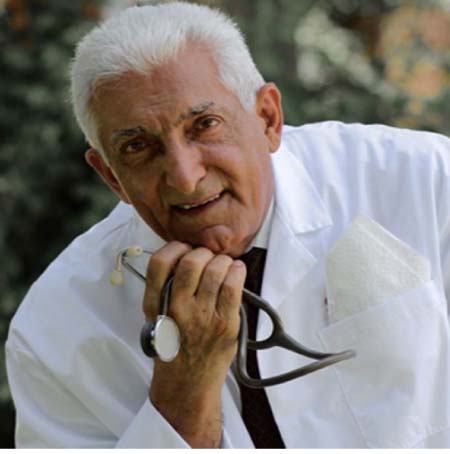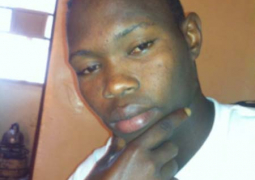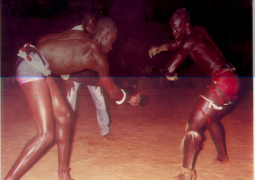
Hence doctors first examined former footballer John Hartson, he was already in the advanced stages of testicular cancer, which had spread to his brain and lungs. Why do men commonly get medical help later than women?
why men in general and worldwide reluctant seeking medical help from medical professionals when they are suffering from any diseases until when disease already rich a advanced stage and possibly losing their life unnecessary in particular in preventable diseases.
“Men tend not to talk about health. Eight years ago there was a survey which found that men like to talk about sport, women, cars. Even politics is more popular than health issues.
Taking risks and thinking nothing bad will happen is even seen as part and parcel of being a man
How can you explain this in your own words
I feel it is sadly true that men, particularly young men, feel that they are invincible and do not seek medical attention until symptoms become almost life threatening. However this culture is possibly changing and men are more willing to discuss health issues- if only the information is actually out there. Unlike many of the other cancers I mention in this article, testicular cancer is one of the few that can be cured IF, caught early enough. More attention should be paid toward the simple act of checking yourself and knowing what feels right for you - this routine could be what saves your life.
Men are generally in poorer health, with a worse diet. They are more likely to smoke and be alcoholics. They do more physical activity but the majority don’t do enough to make any difference to their health.
Male Cancer Campaign suggested that nearly twice as many men as women had not visited their GP in the past years.
Evidence suggests fewer men go to dentists or ask the pharmacist (extremely common in the Gambia that male visit pharmacies for their health problems rather seen a Doctor or a Nurse for advice and information, or attend contraception clinics, although men are more likely to end up in hospital because they delay for so long).
Even male cancer help lines are used more by women, speaking on behalf of partners, fathers or sons. And the fact that more women get skin cancer than men but more men die from it, indicates how late men are going to doctors.
Men are slowly getting better at it, says Mike Shall cross, associate editor of Men’s Health magazine, but the contrast is made between men’s attitude to testicular lumps and women checking their breasts for potential tumours. “There’s that fear when you find a lump on your testicle of thinking ‘If I go to the doctor he’ll just lop it off’, which is the standard treatment, but you can get by perfectly with the one. But in the vast majority of cases, it’s not cancer at all and you’ve done the right thing and got a weight off your mind.”
This kind of comparison can be misleading, however, because women need to be more vigilant, he says, Breast cancer is much more common, with about 45,000 new cases a year compared with 2,000 new cases of testicular cancer, which makes up only 1-2% of male cancers and has a very high survival rate.
“Men could learn from women about attitudes to health. I would characterise it as the way they treat their cars. Women drive very carefully and make sure they take it into the garage at the right time but men just put their foot down until it’s knackered.”
Embarrassment and inexperience were the reason Martin Carter, 37, waited nine months to get his testicle checked after it became swollen and hard.
Some men finally got it seen when it swelled to four times its normal size and he had severe back pain and was losing weight. By then the cancer had spread to his lungs and abdomen and was pushing against theier spine.
A man said “I was only 20 and quite shy,” he says. “Even though I was close to my family and friends, I just felt too embarrassed to tell anyone.
“I thought it was something sexual, something I’d caught, and that made it even harder to talk about it. Back then testicular cancer wasn’t so well known, there were no awareness campaigns like now.
“Also, I didn’t know where to start. I was young and had hardly been to my doctor and when I had been, it was with a parent. That lack of experience meant I didn’t know where to start when it came to seeing my Doctor.”
Gender divide
A man his testicle removed, along with the tumours in his lungs and abdomen, and underwent chemotherapy. The treatment was successful but 14 years later, in 2006, his remaining testicle showed signs of cancer.
He got it checked straight away and was told the cancer had returned. But because he acted immediately it hadn’t spread anywhere else and he only needed to have the testicle removed.
Another man experience underlines the cultural reasons behind the gender divide in the self-diagnosis of cancer, says Professor Colin Cooper, head of the Everyman Centre, Europe’s first research centre dedicated to male cancer.
“Historically women have always been the custodians of health in the family,” he says. “They have cervical screening and breast screening and they take the kids to the Doctor. But men don’t do any of that and tend to be much more reluctant to go when they have symptoms.”
Cancer survival rates in the UK are among the lowest in Europe because the British - both sexes - are for some reason less inclined to go to a doctor and cancer is diagnosed late, says a professor.
Celebrity Jade Goody, who died earlier this year after cervical cancer spread, ignored a letter saying a cervical smear test had indicated abnormalities. But generally women are better than men at acting. It has slightly opened up since but there’s still a problem.”
That’s why men are going to doctors with very advanced cancer, and John Hartson’s survival prospects, although still quite good at about 60:40, would have been 99:1 had he been diagnosed earlier.
Men have a reluctance to ask for help or admit they have a problem about anything, says Peter Baker of Men’s Health Forum, but basing primary health care around office opening hours hardly helps men who are in full-time work.
However, testicular cancer is not the major issue facing men because it’s rare and the clear-up rate is high.
“Campaigns have worked because doctors are seeing testicular tumours at an earlier stage. If I was to pick one issue above all others, obesity and we should do much more about alerting men to the dangers of being overweight.”
“Taking risks and thinking nothing bad will happen is even seen as part and parcel of being a man,”
Health education should equip men with an understanding of what taking these risks means and how it affects their health, but it needs to be done in a humorous way to have any impact.
It should be compulsory for men and women to have regular checks at the doctors for cancer. More and more often, we hear of people being diagnosed too late, why aren’t we all allowed the opportunity to be regularly checked by our GP? Maybe even full health checks on a yearly basis.
For men and women to have regular checks at the doctors for cancer. More and more often, we hear of people being diagnosed too late, why aren’t we all allowed the opportunity to be regularly checked by our Doctor? Maybe even full health checks on a yearly basis.
For further information seek information from any medical profession at numerous of hospital and clinics, E-mail azadehhassan@yahoo.co.uk, send text to 7774469, 3774469 during the week days from 3-6pm.
Author Dr Azadeh Senior Lecturer at the University of the Gambia, Senior Consultant in Obstetrics & Gynaecology, Clinical Director of Medicare Health Services



